Nature Knows and Psionic Success
God provides
Mandatory vaccination is a “public good,” claim Leftists, but ejaculation is “assault?”

( Natural News ) Leftist Democrats are letting their demons show like never before, as a pair of black female Democrats from Georgia recently proposed new legislation that would make it a crime for men to ejaculate without a condom , condemning unprotected sex by men as a form of “aggravated assault.” But when it comes to doctors physically assaulting children with chemical-filled needles in the form of vaccination, these same Democrats praise the practice as somehow helping to promote the “public good.” In other words, it should be an “illegal act,” according to Leftist lunatics, for natural male biology to even exist at all. But loading up metal syringes with aborted human fetal tissue, rat poison (formaldehyde), toxic mercury (Thimerosal), and cancer-causing viral components, and injecting these chemical cocktails into the developing bodies of precious infants and babies, is no problem at all because it’s just “health care.” This is Leftist “logic” in action, folks – and it’s getting worse by the day. Existing as a male will soon be a “crime,” if liberal Democrats get their way, and everyone will have to be injected with dozens upon dozens of Big Pharma vaccines in order to get an education, travel, and potentially even just buy and sell things. And if you dare to speak against this new Leftist “utopia,” well, that’ll more than likely be a crime, too. We’re already seeing major tech giants like Amazon performing digital book burnings of content that Leftists find “offensive,” including independent science and information that shows vaccines to be unsafe and ineffective. The presumable next step will be for Leftists to ban all science and information about human biology that tells the truth about there being only two sexes: male and female. Mother Nature’s micronutrient secret : Organic Broccoli Sprout Capsules […]
A nutty solution for improving brain health
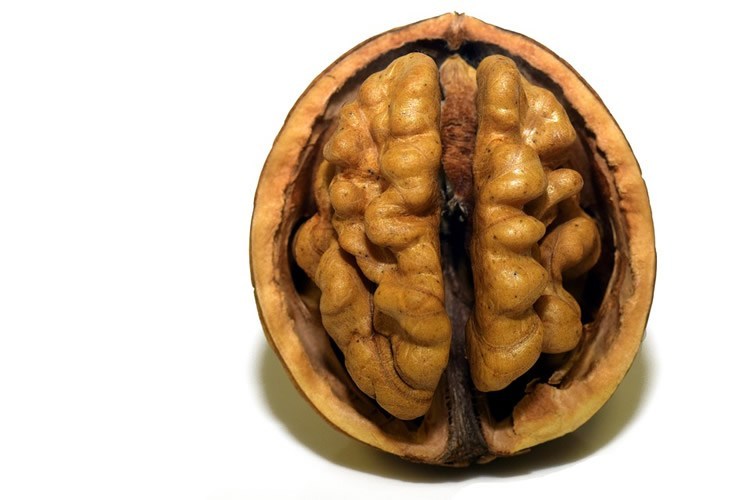
Summary: Eating more than 10 grams of nuts a day has been linked to improved cognitive function, by up to 60%, in older adults. Source: University of South Australia Long-term, high nut consumption could be the key to better cognitive health in older people according to new research from the University of South Australia. In a study of 4822 Chinese adults aged 55+ years, researchers found that eating more than 10 grams of nuts a day was positively associated with better mental functioning, including improved thinking, reasoning, and memory. Lead researcher, UniSA’s Dr. Ming Li, says the study is the first to report an association between cognition and nut intake in older Chinese adults, providing important insights into increasing mental health issues (including dementia) faced by an aging population. “Population aging is one of the most substantial challenges of the twenty-first century. Not only are people living longer, but as they age, they require additional health support which is placing unprecedented pressure on aged-care and health services,” Dr. Li says. “In China, this is a massive issue, as the population is aging far more rapidly than almost any other country in the world. “Improved and preventative health care – including dietary modifications – can help address the challenges that an aging population presents. “By eating more than 10 grams (or two teaspoons) of nuts per day older people could improve their cognitive function by up to 60 percent- compared to those not eating nuts – effectively warding off what would normally be experienced as a natural two-year cognition decline.” China has one of the fastest growing aging populations. In 2029, China’s population is projected to peak at 1.44 billion, with the ratio of young to old dramatically imbalanced by the rising ranks of the elderly. By 2050, 330 million […]
Power up: Caffeine supplementation found to boost the performance of combat sport athletes

( Natural News ) Researchers have found another supplement ideal for athletes: caffeine. A systematic review published in the Journal of the International Society of Sports Nutrition has determined that caffeine supplements can improve strength, power, and endurance in combat sports athletes . For the review, researchers from Spain and the U.S. looked at nine studies published since 2010 that evaluated the effect of caffeine on the performance of athletes in combat sports. The studies examined 109 participants in total: 42 were Brazilian jiu-jitsu athletes, 33 were taekwondo athletes, and 34 were judo athletes. The studies examined caffeine at doses of 3 milligrams per kilogram (mg/kg), 4 mg/kg, 5 mg/kg, and 6 mg/kg at different times before exercise testing. Six of these studies presented a positive correlation between caffeine, physical performance, stamina, and recovery. The researchers found that caffeine doses of 3 to 6 mg/kg have been linked to increased glycolytic activity or breakdown of glucose during the execution of real or simulated combats. Caffeine intake increased hand grip strength, maximum bench press reps, and kick reaction speed compared to placebo. Unlike other workout supplements such as creatine, caffeine does not promote weight gain. This makes it a great supplement for combat sports athletes who have the same energy requirements as other athletes, but their calorie intake is restricted because they need to stay in their weight class. Other studies on caffeine as a workout supplement Many studies have shown that caffeine effectively improves exercise performance . There are studies that have shown that pure caffeine can help endurance athletes run faster and cycle for longer. Other studies have shown that it can help footballers sprint more often and over greater distances, and basketball players to jump higher. There is some evidence that it can also improve the accuracy […]
Eating two teaspoons of NUTS a day boosts brain function by 60%, study reveals
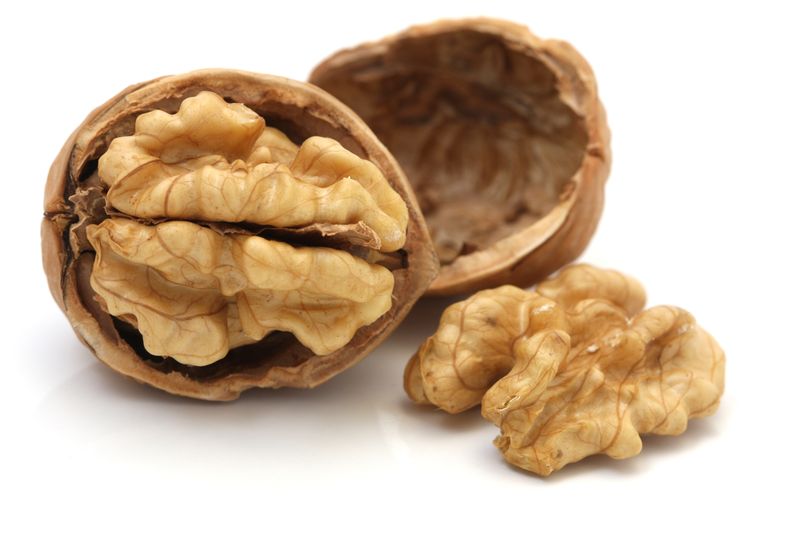
Walnuts (Image: E+) Cognitive decline is something that many people worry about, but it seems that eating nuts could help to slow this process down. Researchers from the University of South Australia have found that eating nuts can help to boost brain function in old age. In the study, the researchers looked at the effect of eating nuts in 4,822 participants aged 55+. The results revealed that adults who ate more than 10g of nuts a day had better brain function, including improved reasoning, memory and thinking. Dr Ming Li, who led the study, said: “By eating more than 10 grams (or two teaspoons) of nuts per day older people could improve their cognitive function by up to 60 per cent – compared to those not eating nuts – effectively warding off what would normally be experienced as a natural two-year cognition decline." While the reason for this boost in brain function remains unclear, the researchers suggest that it may be linked to the anti-inflammatory and antioxidant effects of nuts. Dr Li added: “Nuts are known to be high in healthy fats, protein and fibre with nutritional properties that can lower cholesterol and improve cognitive health. "While there is no cure for age-related cognition decline and neurogenerative disease, variations in what people eat are delivering improvements for older people."
The pantry ingredient that will boost your brain power
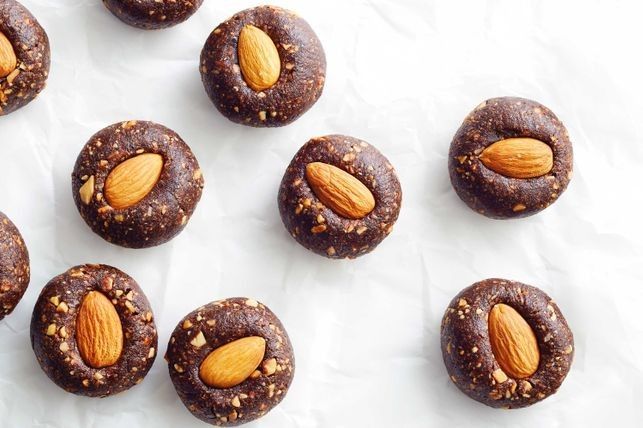
A study has revealed that eating just 2 teaspoons of these a day could ward off ‘brain ageing’ by two years. Experts have revealed that nuts could help increase your cognitive abilities. The new study, carried out by the University of South Australia, showed that eating 2 teaspoons of nuts each day could improve thinking, reasoning and memory in older people by up to 60 per cent. What was the study? UniSA’s lead researcher Dr Ming Li studied data on 4,822 Chinese adults aged 55 years and more, taken over a period of 22 years. He found that 17 per cent of those participants were regular consumers of nuts (mostly peanuts) and that those eating more than 10 grams (or 2 teaspoons) of nuts a day were positively associated with better mental functioning. Dr Li said: “Population aging is one of the most substantial challenges of the twenty-first century. Not only are people living longer, but as they age, they require additional health support which is placing unprecedented pressure on aged-care and health services. “Improved and preventative health care – including dietary modifications – can help address the challenges that an aging population presents. Nuts: ultimate superfoods? “By eating more than 10 grams (or two teaspoons) of nuts per day older people could improve their cognitive function by up to 60 per cent– compared to those not eating nuts – effectively warding off what would normally be experienced as a natural two-year cognition decline.” We all know that’s not all nuts offer. Our 2017 Top 100 Foods list featured almonds as one of the best superfoods around, while our 2019 version praised walnuts, macadamias, brazils, almonds and pecans for their incredible fibre, selenium, protein and good fats content. Our favourite nut recipes Tamari almonds Pecan-crumbed chicken Almond, brazil & […]
Nootropics Claim to Make Your Brain Work Better, But the Science Behind Them Is Murky
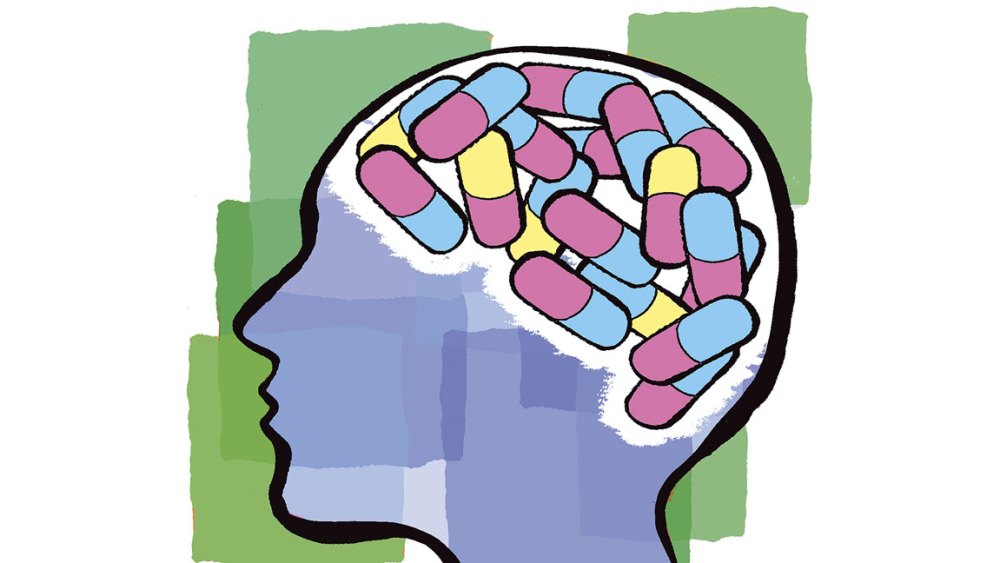
BSIP/UIG via Getty Images Can you boost mental performance with a pill ? A growing number of self-styled biohackers and Silicon Valley types swear that so-called nootropics explain their ability to fit 30 hours’ worth of stuff into a 24-hour day. But the science behind it is a mixed bag. Nootropics are basically cognitive enhancers; users claim that they help memory, aid concentration, or improve brain function without the side effects of dangerous or addictive drugs. Sounds ideal, but when you’re talking about nootropics, things get complicated. First, the term is extremely broad. The attention-deficit drug Ritalin is a nootropic—just ask a college student cramming for finals. So is modafinil, prescribed to treat narcolepsy, which off-label users say enhances decision-making, alertness, and focus. Even caffeine is a nootropic, because it stimulates the brain. But it’s obvious that popping black-market Ritalin is a far cry from a daily Starbucks habit. There is also a plethora of amino acids, vitamins, and herbs that promise to harness the power of natural compounds in an easy-to-take capsule, powder, or drink. A recent global survey revealed that around 30 percent of respondents in the U.S. have tried one of these natural supplements to boost their brains. Which raises two questions: Do they work? And are they dangerous? Even boosters point out that different nootropics—be they herbal or pharmaceutical—carry their own risks. In the meantime, researchers are muddling through scores of specific compounds, trying to deter- mine efficacy and potential side effects. For instance, we know that levels of NAD+, a compound found in cells that protects against neurological damage and fights cellular aging, decreases with age. And nicotinamide riboside—a type of B vitamin—can help restore levels, research in Nature Communications suggests. [BLOCK QUOTE] Another popular nootropic is L-theanine, an amino acid found in green […]
Brain-inspired AI inspires insights about the brain (and vice versa)

Context length preference across cortex. An index of context length preference is computed for each voxel in one subject and projected onto that subject’s cortical surface. Voxels shown in blue are best modeled using short context, while red voxels are best modeled with long context. Credit: Huth lab, UT Austin Can artificial intelligence (AI) help us understand how the brain understands language? Can neuroscience help us understand why AI and neural networks are effective at predicting human perception? Research from Alexander Huth and Shailee Jain from The University of Texas at Austin (UT Austin) suggests both are possible. In a paper presented at the 2018 Conference on Neural Information Processing Systems (NeurIPS), the scholars described the results of experiments that used artificial neural networks to predict with greater accuracy than ever before how different areas in the brain respond to specific words. "As words come into our heads, we form ideas of what someone is saying to us, and we want to understand how that comes to us inside the brain," said Huth, assistant professor of Neuroscience and Computer Science at UT Austin. "It seems like there should be systems to it, but practically, that’s just not how language works. Like anything in biology, it’s very hard to reduce down to a simple set of equations." The work employed a type of recurrent neural network called long short-term memory (LSTM) that includes in its calculations the relationships of each word to what came before to better preserve context. "If a word has multiple meanings, you infer the meaning of that word for that particular sentence depending on what was said earlier," said Jain, a Ph.D. student in Huth’s lab at UT Austin. "Our hypothesis is that this would lead to better predictions of brain activity because the brain cares […]
Neurons Make Estrogen, and it Affects Memory
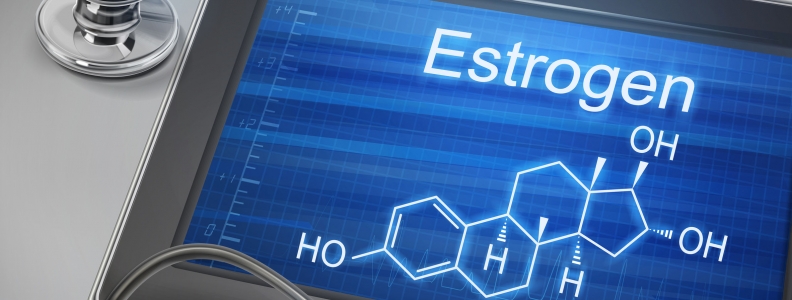
Node Smith, ND Neurons in both males and females make estrogen and scientists have shown that when they don’t, their brains have significantly less dense spines and synapses – both key communication points for neurons – in the biggest part of their brain, called the forebrain. Estrogen in the brain key to keeping neurons communicating and memories being made, scientists report “We think this shows estrogen has a clear role in synaptic plasticity, how the neurons communicate and in memory,” says Dr. Darrell Brann, interim chair of the Department of Neuroscience and Regenerative Medicine at the Medical College of Georgia at Augusta University. Findings Brann and his colleagues found that mice whose neurons don’t make estrogen have impaired spatial reference memory – like a baseball player not knowing where home plate is and what it means to get there – as well as recognition memory and contextual fear memory – so they have trouble remembering what’s hazardous – they report in the Journal of Neuroscience . Restoring estrogen levels to the brain area rescues impaired functions, report Brann and his colleagues It was known that aromatase, the enzyme that converts testosterone to estrogen, was made in the brain’s hippocampus and cerebral cortex in a variety of species that includes humans, Brann says, and that they all can have memory deficits when aromatase is blocked. Patients who take an aromatase inhibitor for estrogen-dependent breast cancer also have reported memory problems. So, for these studies in mice, they knocked aromatase out of the forebrain, which includes the hippocampus, which has a role in making long-term memories and spatial memory, and the cerebral cortex, which is important to memory, attention, awareness and thought. Depleted aromatase only in the excitatory neurons They depleted aromatase only in the excitatory neurons – called excitatory because […]
What Exactly Are Nootropics?
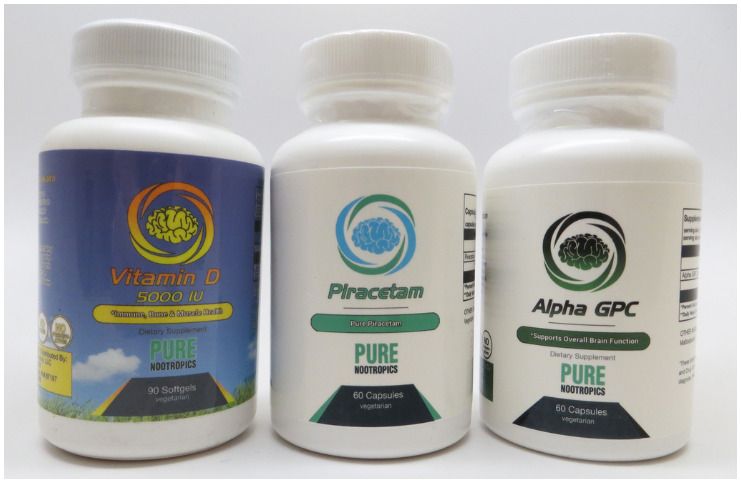
Nootropics are drugs, supplements, or foods that can enhance the way the brain works, whether through improving mental clarity, improving intelligence, or increasing focus. They are often called cognitive enhancers or smart drugs due to the way they work, and are something that has become ever popular in recent years. VIDEO OF THE DAY The first nootropic was created in 1963 by Dr Corneliu E. Giurgea . Called piracetam, it can help to boost the mood while improving memory. Despite being created over 50 years ago, it is still one of the most common nootropics in use today, and is also one that has had the most research conducted on it. That said, there are a lot of different nootropics available nowadays, each with its own benefits. What is Classified as a Nootropic? When developing his nootropic, Dr Giurgea created a list of five criteria that he believed a product needed to meet in order to be labeled as such. These include: It should be non-toxic and have no side effects; It should increase neuronal efficiency in the sub-cerebral cortex and the cerebral cortex; It should protect the brain against physical and chemical assaults, such as those caused by barbiturates; It should improve resistance levels to memories and learned behaviors that disrupt them; It should enhance learning and memory. Nowadays, it would be unfair to say that every nootropic developed meets every single one of the criteria listed by Dr Giurgea. However, all nootropics do meet the final criterion – they benefit mental energy and thinking. Because of this, though, it can be hard to classify exactly what is classed as a nootropic and what isn’t. Everything from controlled substances like Adderall to everyday substances like caffeine can technically fall under the modern-day classification. They’re Not a Miracle Drug […]
10 Reasons why vitamin D is essential for your health

( Natural News ) Vitamin D is often referred to as the “sunshine vitamin” because it’s synthesized in the skin after exposure to sunlight. While technically considered a hormone, vitamin D is paramount for optimal health . Unlike most other essential nutrients, vitamin D can only be found in a handful of foods such as fatty fish, certain mushrooms, eggs, and fortified foods, making the sun the most important source of vitamin D. These days, however, most of us tend to spend less time outdoors which may explain why more than a third of the world population suffers from low levels of vitamin D. Below you’ll find ten reasons why you should soak up some sun on a daily basis to protect your health. Improves muscle function Vitamin D deficiency has been linked to loss of muscle mass and strength. Scientists found that an active form of vitamin D in the blood (vitamin D3) could improve lower limb strength . Volunteers who participated in the study showed greater power and speed after vitamin D3 supplementation. Reduces the severity of asthma attacks When added to a usual asthma treatment, vitamin D may lower the risk of severe asthma attacks by half. Helps to prevent and treat Multiple Sclerosis Multiple sclerosis (MS) is an autoimmune disease in which the body attacks its own brain, spinal cord, and optic nerves. Some studies, however, found that maintaining proper vitamin D levels may slow down the progression of the disease while lowering the risk by up to 62 percent. Improves heart health While taking vitamin D supplements doesn’t seem to have the same heart-protective effect as spending more time outdoors, adequate vitamin D in your blood may slash the risk of a heart attack or chronic heart failure. The power of the elements : […]
Older women encouraged to dance to reduce their risk of disability

( Natural News ) No one’s too old to dance. In fact, dancing can be beneficial to seniors, especially older women. Researchers from Japan and Korea report that dancing can greatly reduce the risk of disability for activities of daily living in older women. Exercise has been known to reduce the risk of disability, but the degree of associations between particular exercise types and such risk remains unknown. Therefore, the study looked at the potential effects of 16 different types of exercise may have in reducing disability for activities of daily living (ADL) in older women. In conducting the study, the researchers enrolled 1,003 community-dwelling older Japanese women without ADL disability. They defined ADL disability as dependence in at least one everyday task, such as bathing, dressing, eating, toileting, or walking. Before the actual study, all participants underwent a face-to-face interview in which they were asked whether or not they participated in any of 16 exercise types. The results of the study showed that after eight years of follow-up, 130 participants were reported to have a disability for activities of daily living. Those who participated in dancing were 73 percent less likely to develop disability for activities of daily living. However, the researchers did not find any significant links between other exercise types and activities of daily living disability. The reason behind this remains unknown, but the researchers argue that dancing has various elements that may have contributed to the effect. “Dancing requires not only balance, strength, and endurance ability, but also cognitive ability: adaptability and concentration to move according to the music and partner, artistry for graceful and fluid motion, and memory for choreography,” said Yosuke Osuka, lead author of the study. 100% organic essential oil sets now available for your home and personal care, including Rosemary, Oregano, […]
A nutty solution for improving brain health

Long-term, high nut consumption could be the key to better cognitive health in older people according to new research from the University of South Australia. In a study of 4822 Chinese adults aged 55+ years, researchers found that eating more than 10 grams of nuts a day was positively associated with better mental functioning, including improved thinking, reasoning and memory. Lead researcher, UniSA’s Dr Ming Li , says the study is the first to report an association between cognition and nut intake in older Chinese adults, providing important insights into increasing mental health issues (including dementia) faced by an ageing population. "Population aging is one of the most substantial challenges of the twenty-first century. Not only are people living longer, but as they age, they require additional health support which is placing unprecedented pressure on aged-care and health services," Dr Li says. "In China, this is a massive issue, as the population is ageing far more rapidly than almost any other country in the world. "Improved and preventative health care – including dietary modifications – can help address the challenges that an aging population presents. "By eating more than 10 grams (or two teaspoons) of nuts per day older people could improve their cognitive function by up to 60 per cent- compared to those not eating nuts – effectively warding off what would normally be experienced as a natural two-year cognition decline." China has one of the fastest growing aging populations. In 2029, China’s population is projected to peak at 1.44 billion , with the ratio of young to old dramatically imbalanced by the rising ranks of the elderly. By 2050, 330 million Chinese will be over age 65 , and 90.4 million will be over age 80 , representing the world’s largest population of this most elderly age […]
Eating Nuts Every Day Can Boost Your Brain Health
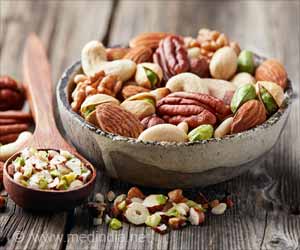
Eating nuts regularly can improve your brain health and keep your mind sharp, reports a new study. Long-term, high nut consumption could be the key to better cognitive health in older people according to new research from the University of South Australia. In a study of 4822 Chinese adults aged 55+ years, researchers found that eating more than 10 grams of nuts a day was positively associated with better mental functioning, including improved thinking, reasoning, and memory. ‘Eating more than 10 grams of nuts a day can improve your brain health. So, make sure to grab some nuts regularly to boost your thinking, reasoning and memory skills.’ Read More.. Lead researcher, UniSA’s Dr. Ming Li, says the study is the first to report an association between cognition and nut intake in older Chinese adults, providing important insights into increasing mental health issues (including dementia) faced by an aging population. "Population aging is one of the most substantial challenges of the twenty-first century. Not only are people living longer, but as they age, they require additional health support which is placing unprecedented pressure on aged-care and health services," Dr. Li says. "In China, this is a massive issue, as the population is aging far more rapidly than almost any other country in the world. "Improved and preventative health care – including dietary modifications – can help address the challenges that an aging population presents. "By eating more than 10 grams (or two teaspoons) of nuts per day older people could improve their cognitive function by up to 60 percent- compared to those not eating nuts – effectively warding off what would normally be experienced as a natural two-year cognition decline." China has one of the fastest growing aging populations. In 2029, China’s population is projected to peak at 1.44 billion, […]
17 Proven Plants That Improve Memory & Concentration

There are Plants that Improve Memory and Concentration and using them can keep your brain healthy and enhance cognitive functioning. 1. Huperzia Huperzine-A is a compound that is usually derived from the extracts of Huperzia serrata, also known as firmoss . The plant is native to the parts of China and Southeast Asia. The compound-huperzine A is commonly used as a memory enhancer because it affects the neurotransmitters and in turn, promotes healthy growth of the brain. It also helps in Alzheimer disease and vascular dementia. Read more about it here ! 2. Beans Choline is a nutrient present in most types of beans. It boosts the healthy metabolism and fosters the creation of neurotransmitters in the brain. Also, choline prevents the decline of the cognition actions of the mind. You can steam the beans and eat them with a pinch of salt for a maximum benefit. Already, beans are one of the richest vegan protein sources; it’s worthy of adding them in your regular diet. 3. Ginkgo Biloba Ginkgo biloba is used for many cognitive benefits since time immemorial. Furthermore, this powerful medicinal herb may regenerate and heal the brain cells, promoting attention, memory, and intelligence. Besides improving mental health, Ginkgo Biloba has many other health benefits too. However, be careful while using this herb if you’re on certain medication. Get help from here if you would like to grow a ginkgo biloba tree in your garden. 4. Kale Having the highest densities of nutrients, kale is a great natural source to maintain good mental health. It consists of the well-known brain supporting fatty acids–Omega-3. There’s also a presence of a plant pigment known as Lutein, which enhances the learning and memory power. There are numerous ways to consume kale: You can add it into your salads or […]
6 health benefits of boysenberries

( Natural News ) The boysenberry is a superfood that has many health benefits. According to several studies, boysenberries are linked to improved brain and lung health . The fruit can also help boost your digestion and immunity. Listed below are the six health benefits of boysenberries. They boost brain health. Boysenberries can boost brain health because they contain anthocyanin , a flavonoid with antioxidant effects that can help boost memory. Anthocyanins can also prevent oxidative damage. Additionally, they can lower your risk of Alzheimer’s disease and cognitive decline. They boost your immunity and fight cancer. Boysenberries are anti-inflammatory and can help boost your immunity and prevent different types of cancer, such as malignant esophageal and colorectal tumors. The berries also have vitamin C that can help fight off infections and eliminate cancer-causing free radicals. They help regulate blood pressure and triglyceride levels. Boysenberries can improve heart health since they have the antioxidant vitamin C. The berries also have a good potassium-sodium ratio. A cup of boysenberries contains 183 milligrams (mg) of potassium , which can help balance out the negative effects of salt. This then helps reduce the risk of high blood pressure. According to a 2014 study published in the Journal of Nutritional Science and Vitaminology , the polyphenolic compounds of boysenberry juice can help reduce nitric oxide concentration through the “aortic endothelial nitric oxide synthase activation in hypertensive rats.” In short, boysenberry could be beneficial for heart health, and it may help lower blood pressure. (Related: Japanese study concludes that boysenberries help maintain vascular stability .) 100% organic essential oil sets now available for your home and personal care, including Rosemary, Oregano, Eucalyptus, Tea Tree, Clary Sage and more, all 100% organic and laboratory tested for safety. A multitude of uses, from stress reduction to topical […]
Neurohacker Expands its Healthcare Practitioner Channel through a Partnership with Natural Partners Fullscript
ENCINITAS, Calif., March 19, 2019 /PRNewswire-PRWeb/ — Neurohacker Collective, the leader in optimizing human capacity with a focus on brain supplements, announces the launch of its nootropics line – Qualia Mind, Qualia Focus, and Qualia Mind Caffeine Free, on Fullscript, the premiere online supplement dispensing platform for healthcare practitioners and Natural Partners, an e-commerce platform for wholesale ordering of professional grade supplements. Neurohacker creates best-in-class, well-being products and is focused on a unique research methodology based on complex systems science, which understands that different systems in the body don’t act in isolation. "We are very pleased to partner with Natural Partners Fullscript," says Neurohacker co-Founder, James Schmachtenberger. "This partnership will enable us to distribute our products to Natural Partners’ network of over 27,000 healthcare providers." "Introducing Neurohacker to our portfolio meets the growing interest of nootropic products among our practitioners," says Kyle Braatz, President of Natural Partners Fullscript. "We are excited to watch this brand grow in the healthcare community as a Natural Partners Fullscript partner." The Natural Partners Fullscript platforms allow practitioners to provide supplements and products to their patients, no matter how they do business. With Fullscript, practitioners don’t need to manage a physical inventory, while Natural Partners allows practitioners to fulfill their in-practice dispensary. "I have been using nootropics for years, and recommending them to my patients as well. Normally, only 50% of them would respond favorably so I started to look for other resources. Once I started using Qualia in my practice I saw that 90% of the patients were responding favorably. That’s a drastic difference and why I stand behind this product line," says Dr. Daniel Stickler, Medical Director of Neurohacker, and Chief Medical Officer of the Apeiron Center. Developed by a team of premiere, forward-thinking scientists, researchers and entrepreneurs, the Qualia product line […]
Here are 5 tips for a healthy bladder

( Natural News ) There are a lot of articles online about heart or brain health, but bladder health, which is just as important, seems to be a topic that is often avoided. However, you shouldn’t feel embarrassed, especially if you want to learn how to improve your overall well-being and prevent urinary tract infections (UTIs) . Why is bladder health important? Your bladder is the organ that’s responsible for getting rid of the urinary waste produced by your kidneys. It is important to maintain bladder health since this can help prevent different painful, debilitating, or even some life-threatening conditions such as UTIs. Below are suggestions that can help keep your bladder healthy. Exercise your pelvic floor. To keep your bladder muscles strong, try doing Kegel (pelvic floor) exercises daily. These exercises can also help prevent urinary incontinence and other pelvic floor-related health problems. You can do Kegel exercises by “squeezing” the muscles you use to urinate for a few seconds, then releasing them. Repeat this several times at intervals throughout the day to make your bladder stronger. Follow a proper diet and exercise regularly to avoid constipation. Your diet, physical activity, and bowel movements are interconnected. If you suffer from chronic constipation , your bladder health can suffer because “pushing to produce a bowel movement also places a lot of stress and strain on the bladder.” Constipation can also weaken your bladder over time. Follow a healthy diet that contains fiber-rich and nutritious whole foods to prevent constipation. Exercising regularly can also promote healthy bowel movements. Mother Nature’s micronutrient secret : Organic Broccoli Sprout Capsules now available, delivering 280mg of high-density nutrition, including the extraordinary "sulforaphane" and "glucosinolate" nutrients found only in cruciferous healing foods. Every lot laboratory tested. See availability here. Maintain proper hygiene. Good personal hygiene […]
A nutty solution for improving brain health

Long-term, high nut consumption could be the key to better cognitive health in older people according to new research from the University of South Australia. In a study of 4822 Chinese adults aged 55+ years, researchers found that eating more than 10 grams of nuts a day was positively associated with better mental functioning, including improved thinking, reasoning and memory. Lead researcher, UniSA’s Dr Ming Li , says the study is the first to report an association between cognition and nut intake in older Chinese adults, providing important insights into increasing mental health issues (including dementia) faced by an ageing population. "Population aging is one of the most substantial challenges of the twenty-first century. Not only are people living longer, but as they age, they require additional health support which is placing unprecedented pressure on aged-care and health services," Dr Li says. "In China, this is a massive issue, as the population is ageing far more rapidly than almost any other country in the world. "Improved and preventative health care – including dietary modifications – can help address the challenges that an aging population presents. "By eating more than 10 grams (or two teaspoons) of nuts per day older people could improve their cognitive function by up to 60 per cent- compared to those not eating nuts – effectively warding off what would normally be experienced as a natural two-year cognition decline." China has one of the fastest growing aging populations. In 2029, China’s population is projected to peak at 1.44 billion , with the ratio of young to old dramatically imbalanced by the rising ranks of the elderly. By 2050, 330 million Chinese will be over age 65 , and 90.4 million will be over age 80 , representing the world’s largest population of this most elderly age […]
Global Brain Health Supplement Market
Global Brain Health Supplement Market is estimated to surpass 3.93 USD Billion mark in 2018 and reach 11.52 USD Billion by 2024, at a Compound Annual Growth Rate (CAGR) of 19.2% during the forecast period 2016-2024 globally. Rising geriatric population worldwide is anticipated to fuel the growth of the brain health supplement market. The aging population is facing neurological consequences that have affected on their quality of life (mental health), which can further be controlled by continuous use of health supplements, is driving the growth of the Global Brain Health Supplement Market. In addition, growing parents’ concerns for enhancement of the potential of a child’s brain is expected to drive the demand for brain health supplement globally. On the contrary, the brain health supplement market is restraining by the high price of supplements and less awareness of low income and developing countries. Global Brain Health Supplement Market is segmented into product type, applications, distribution channel, and geography. Among the product type, natural molecules segment is expected to hold the largest share of the global brain health supplement market, due to the low-cost offerings and natural nature of molecules. However, the herbal extract segment is projected to grow with the highest CAGR during the forecast period. In 2017, the memory enhancer application segment accounted for the largest share of the market and expected to dominate in the forecast period. On the basis of region, brain health supplement market is divided into North America, Europe, Asia Pacific, Latin America, and Middle East & Africa. In the year 2017, North America accounted for the largest share of the brain health supplement market owing to increased awareness of the benefits of health supplements. Also, the presence of a major manufacturer and their well-established network in the region. Asia Pacific region is expected to […]
Omega-3s found to benefit children diagnosed with behavioral disorders

( Natural News ) Omega-3 fatty acids are best known for their heart-healthy benefits. However, a recent study has found that they can also help boost mental health, especially in children with behavioral disorders. Published in the Journal of Dietary Supplements , the study reports that supplementing children with behavioral disorders with omega-3 fatty acids can help improve their mental health and quality of life . Children with behavioral disorders often experience a decline in their mental health and quality of life, even if their disorders do not reach pathological levels. To address these concerns, researchers from Spain looked at the effects of supplementing with omega-3 fatty acids on these two factors. For the study, they examined a total of 942 children with behavioral disorders aged between six and 12 years old. The participants’ data were recorded at the beginning and after a three-month follow-up visit. Some of the children received dietary supplementation with omega-3 fatty acids, while others did not receive any supplement. To evaluate the effectiveness of omega-3 fatty acid supplementation, the researchers used the Kidscreen-10 and the Strengths and Difficulties Questionnaires (SDQ). The SDQ examines 25 positive and negative attributes, which are divided among five scales: emotional symptoms, conduct problems, hyperactivity or inattention, peer relationship problems, and prosocial behavior. The researchers also compared the characteristics of children with behavioral disorders with those of healthy individuals. Based on the results, supplementing with omega-3 fatty acids significantly improved the health status and quality of life of children with behavioral disorders after three months. It also improved their SDQ scores, except for the emotion subscale. 100% organic essential oil sets now available for your home and personal care, including Rosemary, Oregano, Eucalyptus, Tea Tree, Clary Sage and more, all 100% organic and laboratory tested for safety. A multitude of […]
